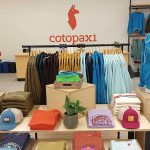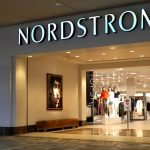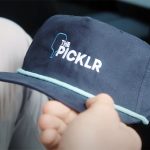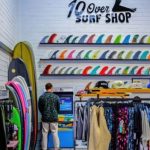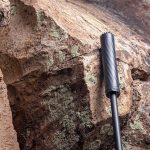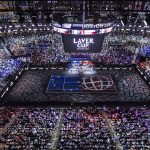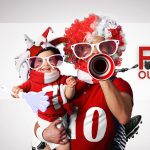Reebok International Ltd. reported net income for the third quarter ended September 30, 2005 of $117.7 million, or $1.87 per diluted share, an earnings per share increase of 39.6% when compared to net income of $81.8 million, or $1.34 per diluted share, for the third quarter of 2004. The third quarter 2005 results were impacted by an after-tax gain of $49 million from the sale of the Company's Ralph Lauren Footwear business and $2.5 million of costs pertaining to certain legal and other expenses associated with the proposed merger with adidas. In addition, the Company's operating results were effected by the previously announced integration of The Hockey Company into the Reebok Brand and from the Company's previously announced plans to reposition its business with Footlocker, Inc., as well as Footlocker's efforts to reduce their inventory levels over the balance of 2005.
Net sales for the 2005 third quarter were $1.04 billion as compared with 2004's third quarter net sales of $1.16 billion. For the Reebok Brand, worldwide sales in the 2005 third quarter were $912 million as compared with 2004's third quarter sales of $1 billion. Currency fluctuations had no material effect on sales comparisons during the quarter.
Paul Fireman, the Company's Chairman and Chief Executive Officer said, “This was certainly an eventful and unusual quarter for us with the announcement on August 3, 2005 of our proposed merger with adidas.” The Company believes that the announcement of the planned merger with adidas has created in the short-term some retailer uncertainty with respect to the Company, and that this impacted the Company's sales and order intake in the quarter, particularly with certain mall based retailers in the U.S. “As we noted last quarter, we are working on repositioning our business with one of our major customers, Footlocker, Inc., by shifting some of our Classic business at Footlocker into new Performance categories that we believe will stimulate consumer demand. Footlocker has also announced plans to reduce their inventory levels over the balance of 2005, and we have been working with them to help them achieve this,” Fireman said. This has had a more significant impact in the quarter than the Company previously anticipated, and resulted in a decline in the Company's sales to Footlocker during the quarter of $46 million as compared with the prior year's third quarter. “While in the short term this is negatively impacting our operating results, we believe our strategy to reposition our business with Footlocker will help to improve our operating margins in the future,” Fireman noted. “The Company's operating results also continue to be negatively impacted by the integration of The Hockey Company business into the Reebok Brand. The Company is consolidating multiple warehouses in Canada into its new distribution facility in St. Laurent. The Company has encountered some startup problems in this new facility and this has caused some difficulty in shipping the current orders for The Hockey Company's products. However, the demand for The Hockey Company's products is being favorably impacted by the start of the NHL season. There has been a high degree of fan interest in the NHL and we believe the 2005/2006 season will stimulate a renewed interest in hockey and greater demand for our products,” Fireman said.
The Company believes that the U.S. market has become promotional in response to economic factors such as rising energy costs and the effect of Hurricanes Katrina and Rita. It expects this trend to continue for the balance of the year. “During the back-to-school period in the U.S. sales of Classic derivative products slowed down at retail as we continue to see a shift in the U.S. market toward performance products. Our new Pump technology product introduction is still in its early stages. For the remainder of this year and for 2006 and beyond we plan to introduce several new evolutions of our self-inflating, self-regulating Pump technology. We believe the Pump technology will become a volume and earnings contributor as we evolve the technology and market its benefits to sports performance enthusiasts,” Fireman noted.
“During this past quarter, we decided to consolidate our Reebok Brand product and marketing groups under one leader. We believe that the new organizational structure will give us greater focus on product and marketing concepts for our targeted consumer groups. The new product teams are fully integrated from design and development through to marketing, and support our product initiatives under the Rbk, Performance, Lifestyle and Children's platforms. These teams will now design and develop product and marketing concepts for a focused consumer segment, rather than by product category as we had in the past. We also restructured our Rbk product team to have a more focused approach on the younger consumer. This team will be responsible for creating cutting edge product and marketing concepts from running and basketball to lifestyle categories such as Classic and music. Our athletes demand products from us that maximize their performance through technology and innovation and our Performance product and marketing team will be focused on delivering new products to athletes that will meet or exceed their needs. Our Lifestyle team will focus on creating new product designs that reflect the different types of consumers for whom Classic products are intended,” Fireman said.
“With respect to our Classic products, while sales of Classic derivative products did slow down in the U.S. during the quarter, this was not our experience in Europe where sales of Classic Fusion and Classic Original products continue to be strong. Our Classic products have been a strength of the Reebok Brand for many years and we believe this will continue into the future. We plan to launch a new line of Rbk Classic products later in 2006 and we will be accelerating the rollout of our Classic Fusion products into several key markets, including the U.S.,” Fireman continued.
“The new “I am what I am” Brand marketing campaign that we launched in February continues to receive a favorable response from consumers. Our research indicates that our advertising is being received as both relevant and aspirational by our target consumers and we will continue to invest behind this campaign. As we move into 2006 our Brand campaign will evolve into a more product specific focus to help launch our new product initiatives and to drive consumer demand,” Fireman added.
“During the quarter, sales of Reebok sports licensed apparel, which includes the NFL, NBA and NHL, increased. Our fan-based licensed apparel continues to perform well in team shops where sales of NFL and NBA products increased by 30% in the quarter. We also continue to work with our league partners to launch exciting new initiatives to grow this business. For example, sales of our NFL and NBA women's products increased substantially for the quarter and for the year to date. And, with the NFL and NHL seasons underway and the NBA season about to tip off, we are well positioned to have another successful year in sports licensed apparel,” Fireman stated.
“Our other brands, Rockport and the Greg Norman collection, had another successful quarter. While sales of our Rockport brand declined slightly in the quarter, the quality of their business continues to improve. Sales to better department stores increased 11% in the quarter and overall operating performance has improved on a year-to-year basis. Rockport's closeout sales and sales to the volume channel declined 15% in the quarter, reflecting a healthier business. We believe the Rockport Brand has made solid progress in the comfort-casual market with innovative styling and unique technologies. And, in a difficult and promotional retail environment Rockport has managed to raise its average selling prices due to new product introductions with higher price points. Our Greg Norman Brand turned in another strong performance this quarter with double-digit sales growth for the eleventh consecutive quarter. The growth for the Greg Norman Brand was fueled by record fill-in and at-once orders in its core golf business this quarter where sales increased by 23% over last year. The increases were driven by strong full-price retail sell throughs primarily in Greg Norman's technology driven Play Dry collection,” Fireman noted.
The Company reported that its gross margin for the third quarter of 2005 was 43.3%, an improvement of 290 basis points when compared with the gross margin of 40.4% in the third quarter of 2004. “For the quarter, most of the improvement came from our international markets,” Fireman said.
Worldwide inventories at September 30, 2005 totaled $507 million compared to $505 million a year ago. Accounts receivable at September 30, 2005 was $740 million compared to $814 million a year ago. During the quarter, the Company repaid from available cash its $100 million, 6.75% debentures which became due on September 15, 2005. At September 30, 2005 the Company had $482 million of cash as compared with $270 million of cash at September 30, 2004.
“Looking forward to the balance of 2005, we believe that our fourth quarter revenue, excluding the impact of the sale in July 2005 of our Ralph Lauren Footwear business, will be in the range of the prior year's fourth quarter. However, we believe that based on improved gross margins and as a result, improved operating margins, our fourth quarter diluted earnings per share, excluding any merger related or other unusual items, will be in the range of $.55 to $.65 which is in the range of current analyst estimates. Our outlook with respect to the fourth quarter reflects one of our key financial goals which is to improve the operating margins of the Company. Looking forward, we are excited about the prospects of combining our great Company with adidas. The combined company will be able to offer an enhanced portfolio of global brands that truly addresses the needs of today's and tomorrow's consumers,” Fireman concluded.

